Mysteries Of The Ego – Explained
Philosophers, doctors and psychologists have attempted to describe what this thing we call the “ego” really is. In this article, we will attempt to understand it from a purely scientific, biological and basic standpoint. The goal is to develop a working knowledge of the ego, so you can be more successful in whatever endeavors you choose.

We will make a few assumptions, but end the end, you will find this description is very helpful in your day to day life. This is not meant to be an esoteric discussion that only serves to satisfy your metaphysical desires of understanding. This will be a real world treatment, that will give you real world abilities to deal with all the troublesome aspects of our ego.
What Problems Does The Ego Cause
When you think of the ego, what problems are associated with it? Very rarely does the ego get any love, it’s almost always listed as the main culprit of our lives. Let’s start with some of the most common problems associated with the ego.
Self Above Others
When people are said to have a “big ego” it usually means they have a higher than realistic opinion of themselves. They think they are more fantastic than they really are. They do things because of the social recognition, rather than the things themselves. They achieve higher positions at work not because they enjoy honing their skills, but because they are seeking social glory
Male Fragility
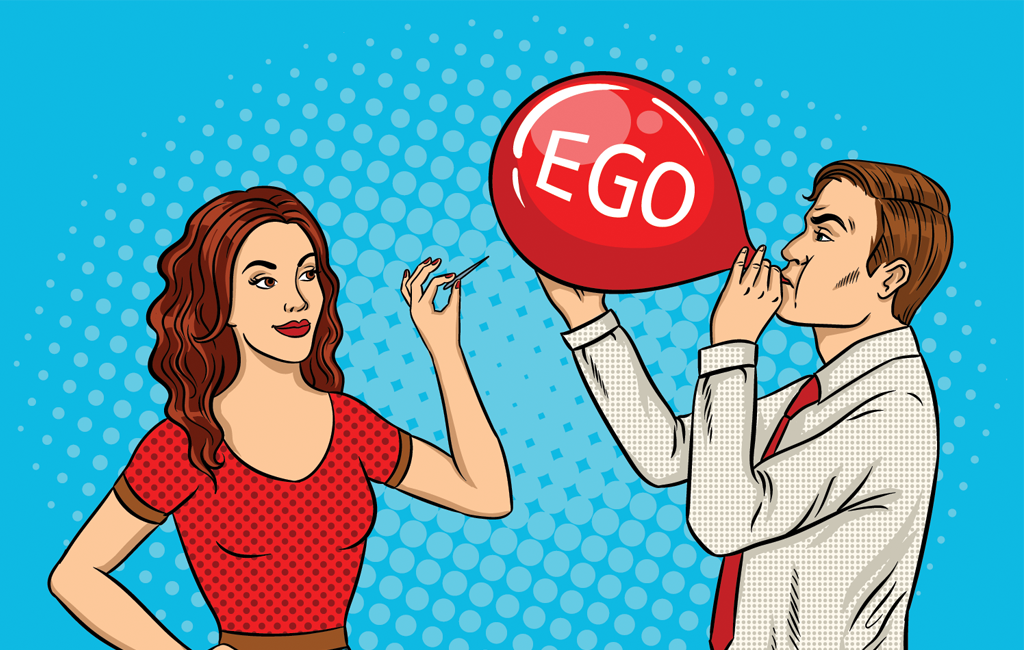
Men are said to have fragile egos. We take things too hard. When we try something and fail, we are prone to sulk and lick our wounds. When we aren’t recognized as fantastic as we think we are, we might be too emotionally wounded to make an effective recovery. There are many things women love about men, but our ego isn’t one of them!
Social Attention
Our ego seems to be hyper sensitive to what others are saying about us. We see people whispering and looking in our direction. We fear the worst, and want to run home and hide in the closet. We are busy at work and our boss bellows our name and calls us into the office. We walk over, terrified, as we feel the stares of everybody on us.
Hypersensitivity To Self

If we are alone on a desert island, living off coconuts and fish, we don’t have any ego problems. Ego only seems to be a problem when it comes to how we are viewed and judged by our peers. When people are happy with our performance, we feel fantastic. When people look at us and shake their heads, it feels like the world is about to end.
Easily Esoteric
It is very easy to get very esoteric about all of this. Our ego can’t be measured, how we feel with regards to any ego safety is not anything we can count. Our idea about our ego is impossible to quantify. We only know that it has something to do with how others view us. Our ego is not measurable in any scientific way. It can makes us feel really good and really bad. These emotions are strong.
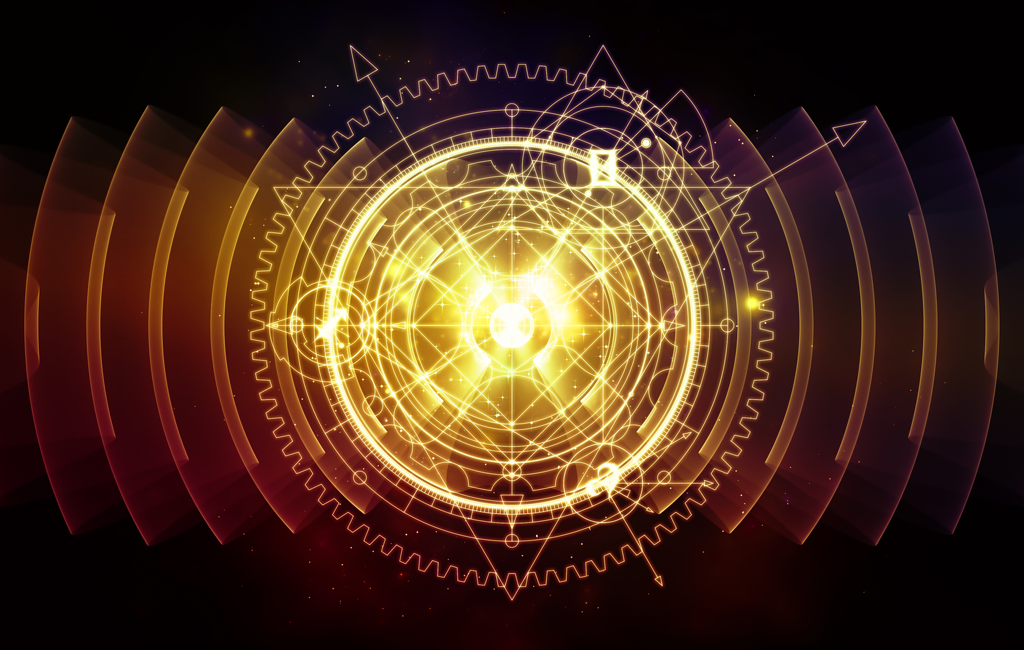
The mysterious force responsible for this is not even something we can locate on our body. So the result is that anybody’s idea can sound good, so long as it accurately describes the process. But these esoteric and metaphysical descriptions don’t help us. We don’t want to understand the ego, we want to manage it.
Roundabout Treatment
To understand exactly what the ego is, we need to understand who we are, and where we come from. This is where we have to make some scientific and biological assumptions. If you can stick with these assumptions, you’ll find they do a pretty good job of describing exactly what the ego is. Once we know what it is, we’ll be able to manage it.
History Of Humans
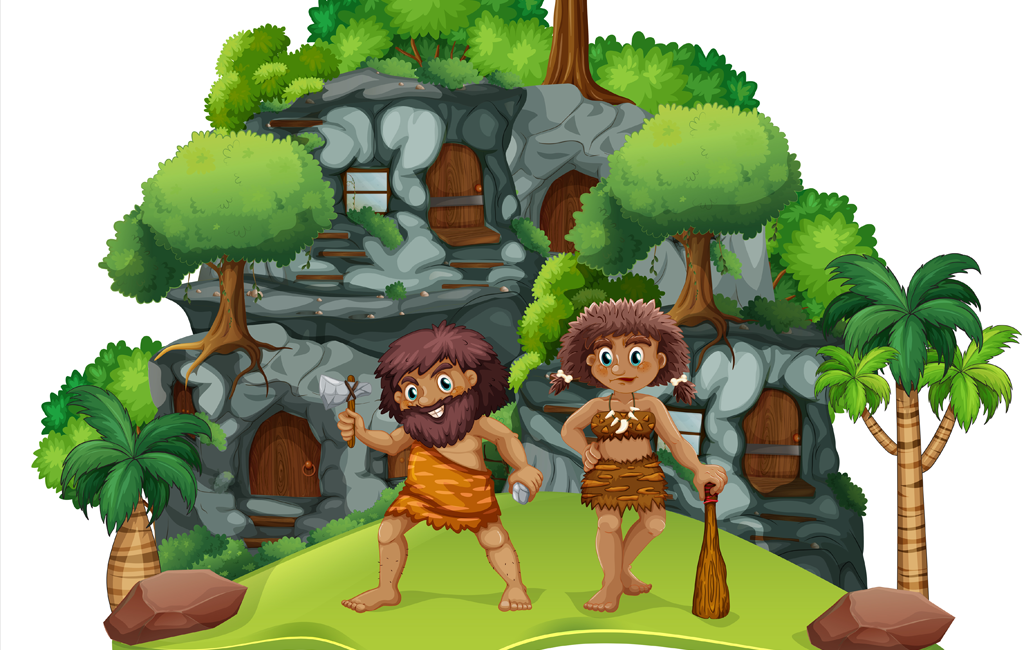
Humans are primates. We split off from chimps about six million years ago. We became anatomical humans about two hundred thousand years ago. Two hundred thousand years out of six million is one out of thirty. That means for 29/30 of our history, we were not humans. Also, we’ve only invented agriculture about 10,000 years ago. This means that we only started living in large groups of people for ten thousand years, out of our common six million year history.
And?
Since we’ve only been humans for 1/30 of our history, we’ve only been using language for that amount of time. That means the “human part” of our brains is pretty recent. We share 98% of our DNA with chimps, even though we split from a common ancestor six million years go.
Implications
This is the assumption that will help us out. If we agree that we only just recently invented spoken language, and even more recently started living in large societies, that means it’s a safe bet that our instincts still believe we are living in a ancient environment.
The Hunger Instinct

It’s easy to understand this when thinking about hunger. Back in the day, we had to hunt for food. Hunting was hard and dangerous. Only those that were the hungriest would survive. Because they were so hungry, not only did this motivate them to take the time to hunt every day, but when they did have food, they ate as much of it as they could.
Ancient people who weren’t hungry, or didn’t suddenly become hungry when food was available, simply didn’t survive. Our ancestors, who were always hungry and made sure to eat everything in sight when they had a chance, did survive.
Modern Hunger Instinct
This is why we don’t feel hungry, but then we see food, and we suddenly are starving. This is why obesity is such a big problem in modern societies. You put people with a never ending hunger instinct and make food super easy to get, and they will become heavy. To stay in shape, we must put in a lot of conscious effort, like exercising and thinking about how to best feed ourselves. If you didn’t think at all about health, and only ate what tasted good and was available, you wouldn’t be very healthy.
Instinct Mis Match
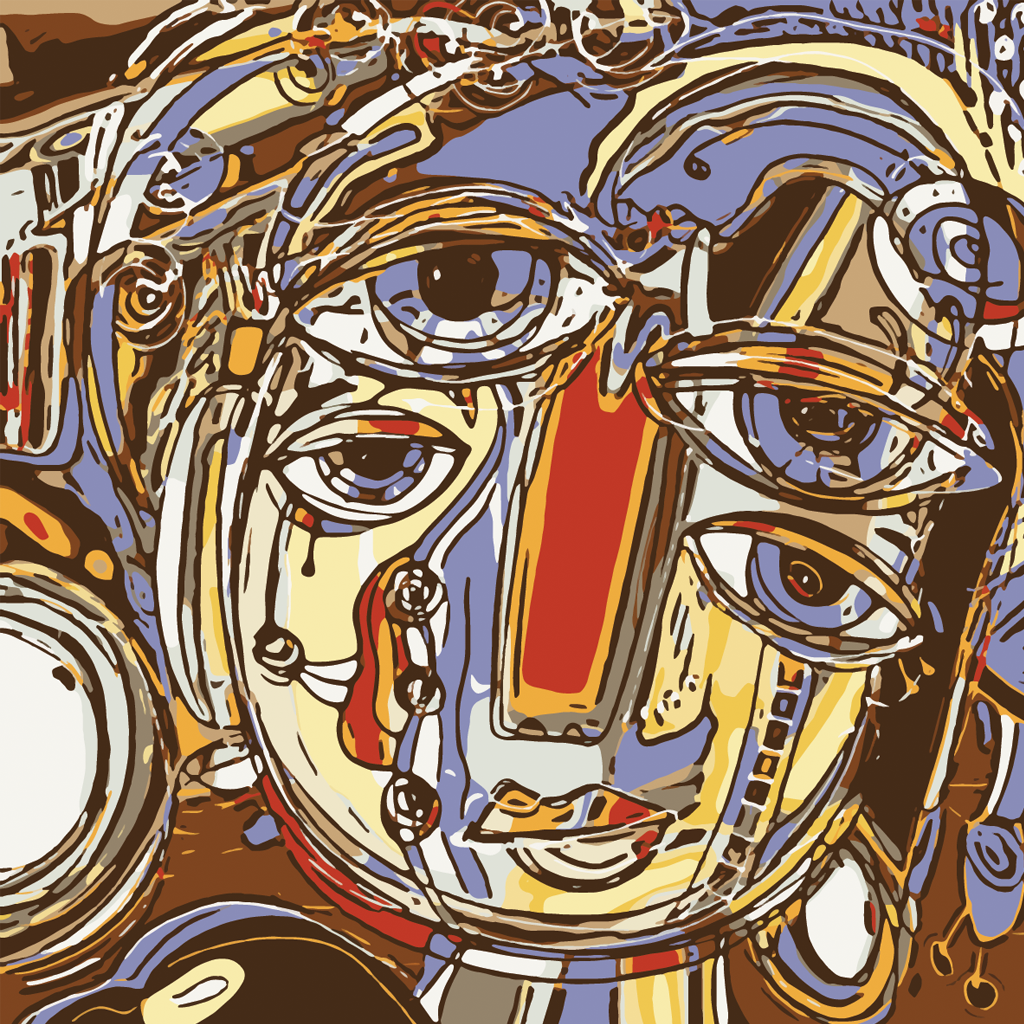
Our assumptions about our ego are based on the idea of an instinct mismatch. Hunger is the easiest to imagine. We feel hungry every day. We physically put things in our mouths when we eat. We feel the wonderful transition from being hungry to not being hungry. This feels good. This is how instincts work. It feels good to satisfy them. But our instincts change very, very slowly. We’ve been in modern societies for a few thousand years, but that is not nearly long enough for evolution to change.
Hunter Gatherer Instincts
Hunger is only one instinct that was perfect for a hunter gatherer lifestyle, but not so great today. There are many others. And as we shall soon see, the ego is simply an instinct that helped us quite a bit in the days of hunter gatherers, but gets in the way today. This is fantastic news. Because the ego is an instinct, just like hunger. And just like we can manage hunger, we can also learn to manage our ego.
Hunter Gatherer Lifestyle
Everything we are today stems from our lives as hunter-gatherers. All of our instincts were cooked during this time period, as it was the longest, most stable period of human history. The invention of agriculture and consequently big cities led to many tumultuous times. This is not to say one is better than the other. I don’t think you’ll find very many people that would actually prefer to live as hunter gatherers. Our only objective is to understand the environment under which our instincts were created, so we can understand their ideal situation.
Instincts As Instructions
We can think of instincts as compulsions that make us do things without needing to think. We are hungry and all we can think about is eating. This makes us forget everything until we can get enough food. Those that had this characteristic survived, while those that never got hungry didn’t. Hunger is obvious, so is the desire for sex, and the desire to relieve yourself. People that never wanted to have sex never did, and they never passed on those “sex-isn’t-interesting” genes to any kids.
Mental Comparison Experiments
We’ll need to do a few mental comparison experiments to help us. For example, we can imagine a tribe of people who never got hungry, and a tribe of others who were always hungry. We can imagine that the tribe who was always hungry was more motivated to hunt, and they got first dibs on any animals. This, of course, is a metaphor. Any tribe was likely comprised of those who had varying degrees of the particular trait in general. But it’s a helpful way of understanding things.
Mathematical Edge
To eventually win out, a trait must only result in slightly more fecundity that any competitive trait. For example, if one particular caveman was always hungry, and another caveman never got more than a just a little bit hungry, what would that mean? It only means anything when it results in hungry caveman having more kids than so-so hungry caveman. Essentially evolution is a long replication contest. Whoever makes more copies is the winner. And to be the winner, you only need to have a very slight advantage.
Mathematical Example
Let’s say we’ve got a couple cavemen. They both have a different response to a yellow flower. One caveman runs away immediately, thinking it’s a tiger. The other caveman walks up halfway to check, before making a decision. Let’s say that only one time out of twenty is it an actual tiger. And only one time out of five, does the tiger eat the caveman who wants to get a closer look. This means that caveman with the “I-want-to-take-a-look gene” will get eaten, on average, every hundred yellow flowers.
Now let’s assume we’ve got a thousand of each. One thousand cavemen that run away as soon as they see yellow. And a thousand caveman that walk up to take a look. Further, let’s assume each caveman sees, on average, ten yellow flowers per year. If there are a thousand cavemen who all walk up to a yellow flower, and every hundred times a caveman gets eaten, how many cavemen get eaten per year?
One thousand cavemen each see ten flowers per year, so we got ten thousand incidents. If one out of a hundred of those ends in a caveman getting eaten, that means 100 cavemen per year are going to get eaten. Let’s make a further assumption that half of the eaten ones have already had kids. So that means each year, five cavemen with the “walk-up-and-check-the-flower” gene will not reproduce, while all that have the “run-like-crazy-when-you-see-yellow” gene will reproduce.
This is all it takes. Eventually, after a few thousand generations, the only cavemen that will be left are the ones who run away after seeing a yellow flower. What does this mean? This means that in order to have an evolutionary impact, a trait only has to create a very slight advantage. And that slight advantage, over time, will eventually take over that gene.
Now We’re Ready
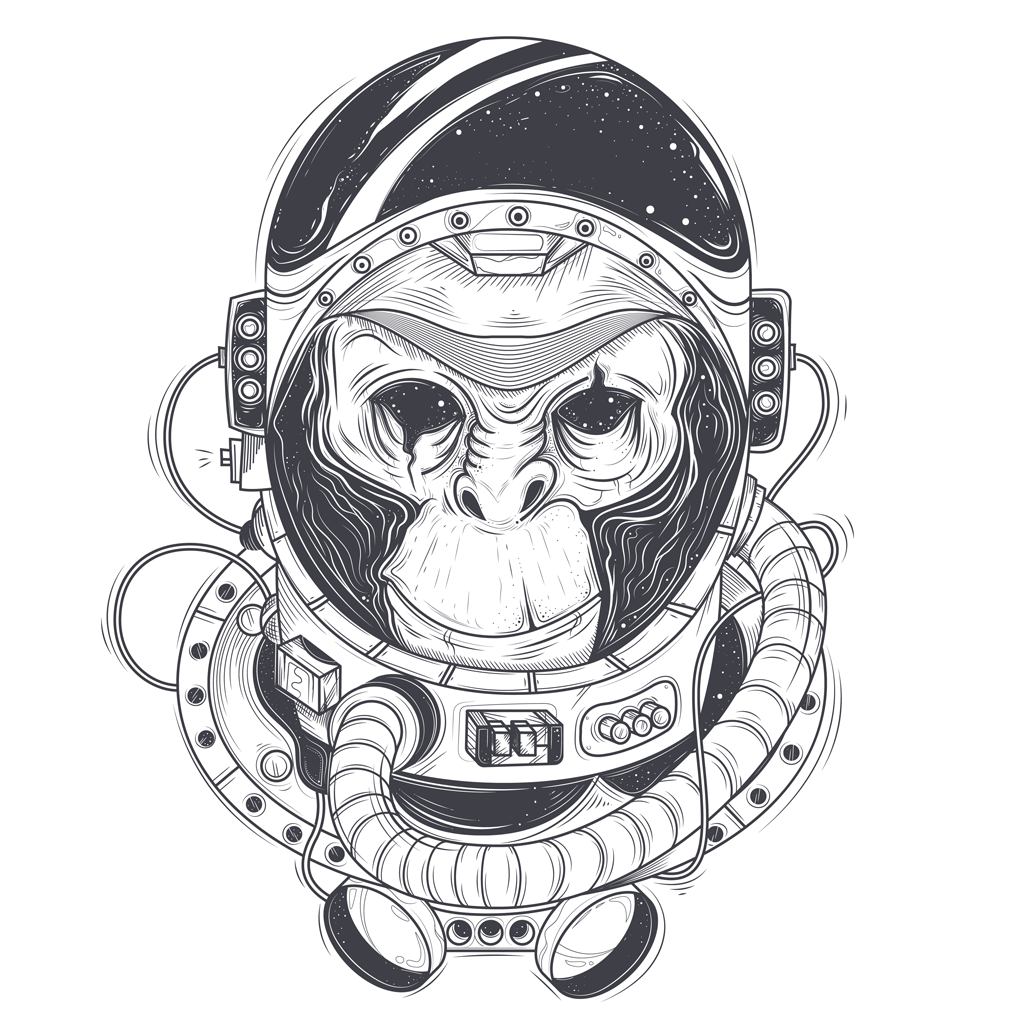
Now we’re ready to do some mind experiments and figure out where our ego comes from. We can also use some data that is taken from modern chimps that will help us. The first thing that is interesting is the idea of social status.
In the widely read book, Chimpanzee Politics, they studied a group of chimps for a couple of years. They found that there was a correlation between social status and sex. Meaning the higher a chimp was on the social status ladder, the more sex he had. Remember, evolution is all about who can make the most copies that live to make copies. So chimps with higher social status had more sex, and presumably more babies, than chimps with lower social status.
We can think of each generation as being made from the winners of the previous generations’ social status contest. Since humans and chimps split off six million years ago, and we are socially similar, and that we share 98% of our DNA, we can assume that human acted the same way, at least until agriculture was invented, and along with it, marriage. At the very least we an assume that humans who got more social status generally had more kids than those with lower social status.
Social Status Desire
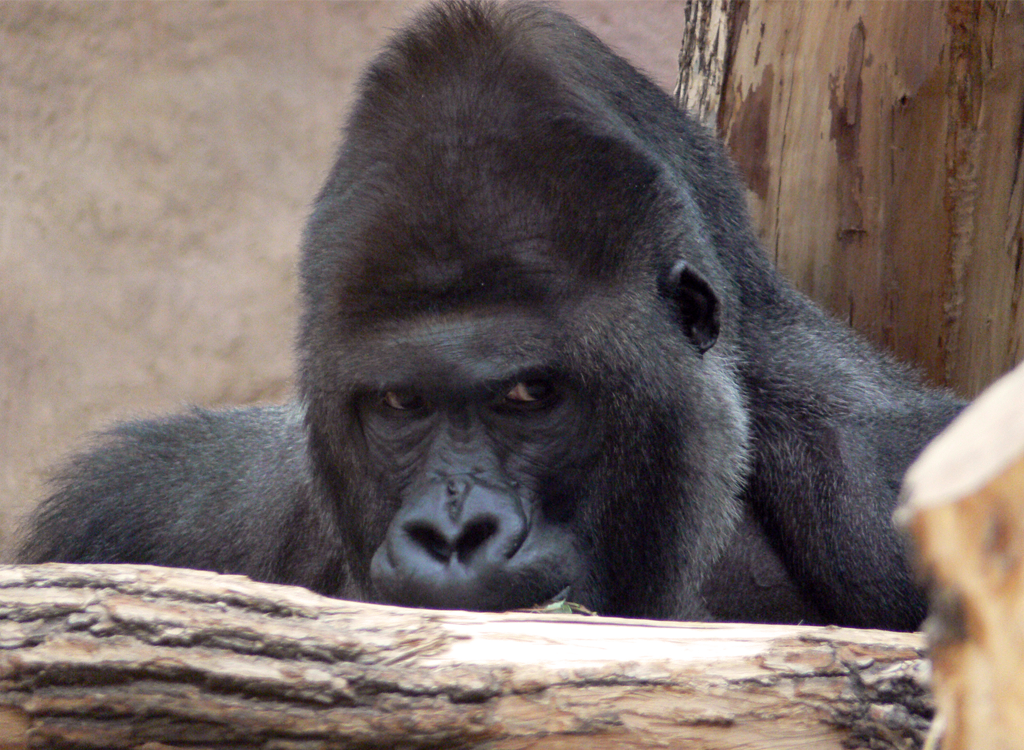
One aspect of our ego then is the instinct to get as much social status as we can. How do instincts work? Think of your desire for food and sex. They are raw impulses, sometimes too strong to be denied. When we are hungry, we aren’t thinking, “Hmm, I’m low on energy, I need a hundred calories of carbohydrates.” We aren’t really thinking anything. We just have this raw desire to eat something.
Everybody Wants To Rule The World
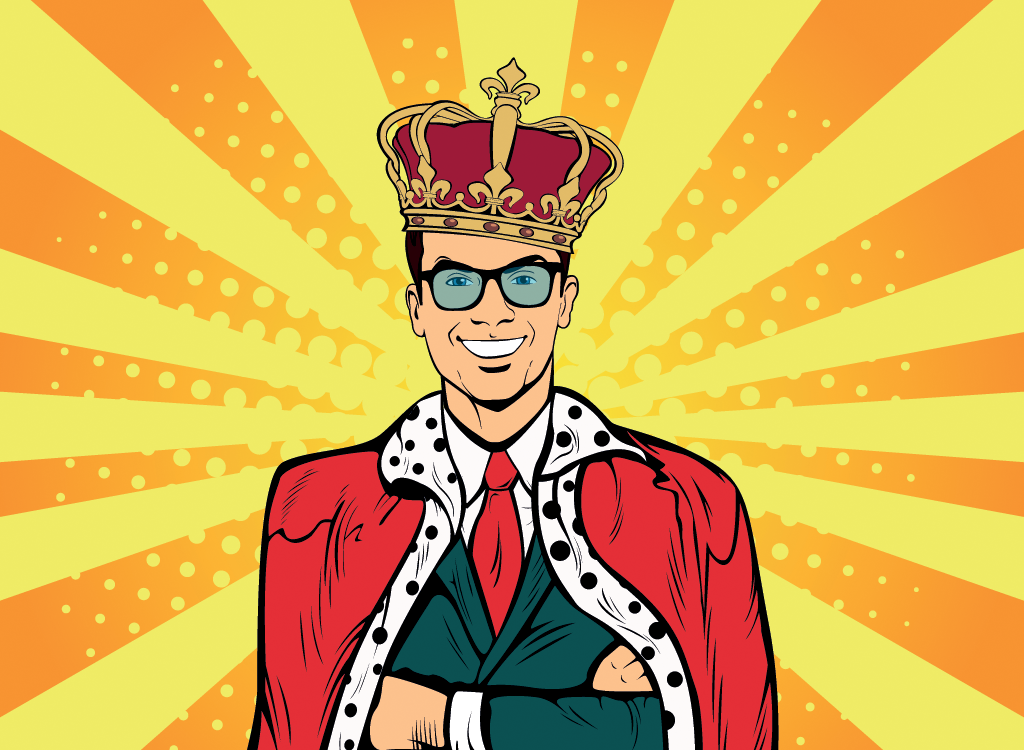
Think of the times you didn’t think you were hungry. Then you saw or smelled food, and suddenly you couldn’t get your mind off food. Consider that our ancient desire for increased social status may be the same way. We don’t really think we want social status until the opportunity presents itself.
Absolute Power Corrupts Absolutely
Our hunger was constrained in the old days because food was hard to find. Today, it’s very easy to become obese. But even when we eat everything we can without restraint, we still have to stop occasionally. If you keep eating, pretty soon you’ll feel miserable. Hunger has some real biological constraints.
Power Constraints
What were the limits on power back in the days of hunter gatherers? Once you were the boss of a tribe, that was it. There was no more power to be had. In Chimpanzee Politics, they found that once a chimp had achieved alpha status, it was a pretty stable society. Only when the alpha started to age did the other chimps begin to plot against him.
Modern Power
Today, there is really no end to the power we humans can get. In Influence, Science and Practice, Cialdini shows that whenever humans are put together, we self-organize into hierarchies. And then they take the top dog from each group, and put those top-dogs into their own group, and the same thing happens. They get top dog in charge of all the other previous top dogs. And it keeps happening. If our assumptions are correct, then there seems to be a biological reason, our deep instinct for social status, that drives our leaders to inevitable corruption. The more power they get, the more power they want.
Other Social Signals
In addition to the constant desire in everybody to move up the social ladder whenever possible, nobody wanted to move down the social ladder. The higher up you were, the easier life was. The lower you were, the worse off you were. So even if you didn’t have any chance of being the ruler, you still wanted to move up. You also did everything you could to slip back down.
Uncommon Experience
Our lives today are much different than back in the days of hunter-gathers. Back then, we lived around the same people our entire lives. Today, people come in and out of our lives all the time. We’ll need to imagine how we might notice if we were slipping down the social ladder. And we’ll need to imagine how we would notice if we were moving up the social ladder.
Instinct Review
Remember, our instincts work so we don’t have to think. You keep eating food that tastes good. Today, they can trick our taste buds so we eat things that aren’t really healthy. But back in the caveman days, that eating instinct was pretty efficient. Stuff that tasted good was healthy, stuff that didn’t taste good (tree bark, rotten animal flesh, moldy fruit) wasn’t healthy. We didn’t have to think about what we ate. We only needed to eat what smelled and tasted good, and avoid whatever looked and smelled gross.
Social Status Measurement
In modern studies, when they put people in groups, we humans tend to sort ourselves out pretty quickly and without much talking. We seem to know who’s in charge, and who isn’t. We can assume the same rules applied back then. But today, whenever they do those studies, they take people away from the normal powers structure. In our modern society, everywhere we go, we have pretty well defined roles. At work, at school, at home, it’s already pretty much spelled out who’s in charge and who isn’t. Back in the caveman days, the only structure was what everybody agreed it was.
How They Measured
They didn’t vote, they didn’t have committee meetings. The evolution of humans from primates took a long time. Our sorting process is still very unconscious. So we can assume that every day, everybody was always evaluating and re-evaluating each other’s standings. One of the key measures of ones own standing was how others treated you. Most importantly, was how they communicated with you non-verbally.
Hunting Imagination

Imagine coming home from a hunt. We’ll imagine two situations. One is when you killed something big and you’re carrying it over your shoulder. People would look at you and smile. What you had represented food and clothing. Everybody would be showing you very positive non-verbal communication. This would make you feel good, just like it does today. When you were out hunting, consider that the primary driver for wanting to kill something really big was how people would treat you when you got back home.
Now imagine walking home with nothing. Not only with nothing, but everybody else has something. Now how do you imagine people would look at you? How do you imagine that would make you feel?
Now imagine that you’ve consistently gotten huge kills when you go out hunting. How do people treat you in your everyday, non-hunting caveman life? Probably pretty good. Everybody wants to be your friend. Now imagine the opposite. Imagine you hadn’t killed anything in a couple of weeks. How do you think people would treat you then? How would that make you feel? Not very good!
Ego Summary
We are now ready to describe what the ego is, from a biological and scientific standpoint. It’s that ancient desire that says get as much social status power as you can. Become the alpha if possible. It also says that getting positive social approval means you’re doing good, and to keep doing that. It says that negative social approval is terrible, and you’d better change what you’re doing so you can switch back to getting positive social approval.
Behavior Modification Device
Just like our hunger is an unconscious drive that feels good when we are eating healthy food, and feels bad when we even think about gross stuff, our ego works the same way. It worked back in those days to modify our behavior to help us be a “good citizen” for the tribe.
Two Tribe Comparison
Let’s imagine two tribes of people, just to make sure. Let’s say one tribe of people didn’t have the ego instinct. They went hunting, and they didn’t care how people looked at them when they came home. They only wanted to kill enough for themselves. Now imagine another tribe that had a very strong ego instinct. Every single one of them hoped to kill something huge, so they’d be treated like a rock star when they got back home. Which tribe do you think would be most likely to survive? The tribe filled with the ego hunters would probably have a lot more food. The tribe without the ego hunters would be less likely to go after big kills.
Million Dollar Question
Now that we have an understanding of what the ego is, how the heck do we deal with it when it bothers us? It never feels good to see people whispering and pointing at us. Our egos still think we are living in the caveman days. But what if we are doing a good job (at school or work) but people still give us a hard time? Here are some useful tips.
Have A Strong Inner Definition Of Success
The first step is to know when you are doing it “right” and when you aren’t. The ego thinks we still need the approval of others for our survival. The first step is to have a clear idea of success in whatever you are doing, so you’ll be less worried if people are talking about you. Most of the time, our fears are false anyway.
Use The Celery Trick
Our hunger is also something that messes us up in modern times. One strategy is to trick it by purposely eating things that take up a lot of stomach space, but don’t have many calories. Another is to drink plenty of water with your meals. Others are to eat slowly, never go shopping when you are hungry, and only eat fast food once a week. These are all consciously chosen strategies to outthink our ancient hunger strategy. We can do the same with our ego.
Build Up A Reservoir Of Rock Star Status

Every caveman wanted to kill something big so they would get rock star status when they got back home. Today is no different. But the people you get rock star status from aren’t the same people you hang out with. You may get rock star status from one group, but negative judgment from another group. One trick is to build up rock star status in areas that you know are important. For example, if your job and your relationship is important, collect as much rock star status memories within those areas as you can.
Journal To Build Your Memories
A great trick is to take a few minutes every night for a couple weeks to take a trip through memory lane. Dig up all the “big kills” at your job, in your relationship, and all of the areas that are most important to you. Things you did well, according to you, and according to everybody else. Back in the caveman days, all they had was hunting. You’ve got tons of things that you can use for your own personal rock star status.
Refer To Your Memories Often
Whenever you find your ego screaming bloody murder, it’s because it thinks the other cave people in your tribe are talking about you and your social status is in question. Force your conscious mind to make sure you understand who they are, and what they represent, if anything, to your real success. Then recall all of the rock star memories, evidence of any “big kills” in whatever areas of your life are most important to you.
Practice Rock Star Memories

Practice recalling anything from your past that you did well according to both you and your peers. Have a goal of only needing your own approval, to be the only source of your rock star status. Paradoxically, the stronger your own rock star status is, according to your own judgment of your successes, the easier you’ll get it from others.
Important Caveat
It’s important to choose these rock star memories from things you’ve actually done, where you knew beforehand what would be success and what would be failure. Don’t give yourself rock star status just because! It must be related to something you chose to do, and you were successful doing.
Choose Your Tribes Carefully

The best thing about being a modern human instead of a caveman is we can join any tribe we want. We’re not stuck with the same two or three hundred goofs our whole lives. Realize also that all of your tribes (school, work, job situation, neighborhood) are all temporary. You can upgrade any time you like. If you don’t have a lot of rock star memories, plan some for your future. Reflect on your plans to join a much better tribe (better job, better school, more loyal friends, better neighborhood, etc. ) in the future.That will take make any ego attacks seem superficial.
Always Improve Yourself

One way to make sure your ego is always happy is to always have a future that is brighter than your present. This will give you a feeling of a being a successful hunter, even if you haven’t killed anything yet. Always taking steps to build a better future, in any way, will help you to remember that your current tribe (work, school, part time job, etc.) is only temporary, and your REAL tribe (dream career, dream family, dream neighborhood) is waiting for you in the future.